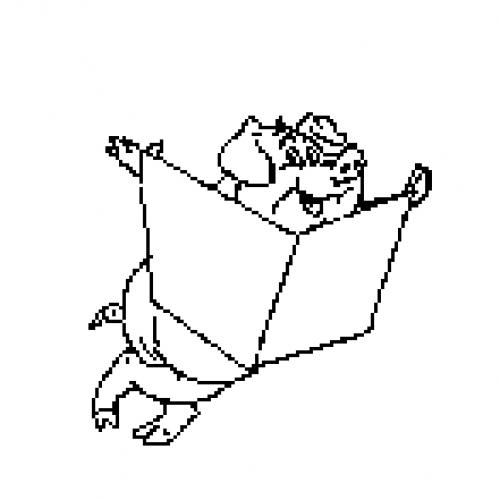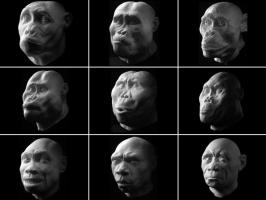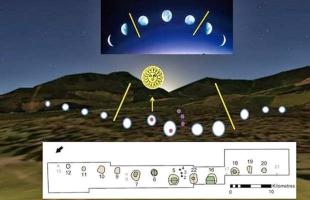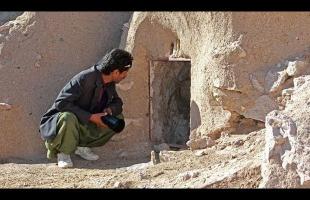Copy Link
Add to Bookmark
Report
Pig Genome Newsletter #117

From: "Rothschild, Max F [AN S]" <mfrothsc@iastate.edu>
To: angenmap@animalgenome.org
Subject: US Pig Genome Newsletter #117
Date: Mon, 01 Jul 2013 18:13:30 -0500
Pig Genome Update # 117:
- PDF version is available at
http://www.animalgenome.org/pig/newsletter/pdf/No.117.pdf
- Web version is available at
http://www.animalgenome.org/pig/newsletter/No.117.html
- Plain text version is appended below:
P I G G E N O M E U P D A T E
_________________________________________________________________
A Periodic Newsletter of the U.S. Pig Genome Coordination Program
************** No. 117 **************
* *
* July 1, 2013 *
***************************************
===========================================================================
1. Great news! The NRSP Review Committee has recommended for approval
2. MGI announced a new implementation of comparative genome data
3. On a sad note, Dr Jan Rapacz has passed away May 5th. 2013
4. The swine genome coordinator is always glad to hear from NRSP-8 members
5. World Pork Expo was in early June and brought thousands of people
6. Upcoming meetings ( 6 items )
===========================================================================
Great news! The NRSP Review Committee has recommended for approval without
any revisions the new NRSP8 project proposal and budget. The Experiment
Station Directors who meet in September will have to approve it but this
means we are likely to be approved for another 5 years. However, a new Swine
Genome Coordinator is needed starting October 1. Max Rothschild has
announced he plans to step down on September 30, 2013 after serving as the
Swine Genome Coordinator for 20 years if a suitable person can be found. If
you have interest and questions about the position please contact him.
o o o o o o o o o o o
MGI is pleased to announce a new implementation of comparative genome data.
Previously MGI used a one-to-one orthology relationship between a mouse gene
and that of another mammalian species. MGI now uses homology class data from
HomoloGene and supports a "many-to-many" relationship between mouse genes
and their vertebrate homologs. Chicken, zebrafish and rhesus macaque homologs
are now included in this release as well as human, chimpanzee, dog, cattle
and rat. Vertebrate Homology Class pages include: Gene symbols, Genetic
locations, Links to EntrezGene & OMIM, Associated human diseases, Comparative
GO Graphs, Sequences and HomoloGene multiple sequence alignments. For an
example, see this complement component Vertebrate Homology Class page:
http://www.informatics.jax.org/homology/36030. The mouse gene symbols link
to gene detail pages which link to gene ontology, gene expression and allele
details. For examples see http://www.informatics.jax.org/marker/MGI:95691 for
the myostatin gene and
http://www.informatics.jax.org/allele/allgenoviews/MGI:2148177 for a
phenotype detail. Please send questions and comments to MGI User Support,
mgi-help@jax.org.
o o o o o o o o o o o
On a sad note, Dr. Jan Rapacz, Professor Emeritus of Genetics at the
University of Wisconsin, passed away May 5th. 2013 in Krakow, Poland at the
age of 84. He received the B.S. degree in Animal Sciences (1953) and the M.S.
degree in Animal Physiology (1955) from the Faculty of Animal Sciences,
University of Jagiellonica, Krakow, Poland. He received the Ph.D. in
Immunogenetics in 1959 joint from the University of Jagiellonica, Krakow and
the Medical School, Zabrze-Rokitnica, Poland. His paper on the Heredity of
Rabbit Gamma Globulin iso-antigens (Acta Genetica et Statistica, Basel 1962)
set the stage for his research on genetic variations of antigens in blood
groups and other protein systems. Jan had many positions until he finally
went back to the University of Wisconsin at Madison in 1970 as an Associate
Professor of Genetics, joint between the Department of Genetics and
Department of Meat & Animal Sciences, University of Wisconsin-Madison. He was
promoted to full Professor in 1978, and headed the Immunogenetics Program
until his retirement in 1998. His early research involved establishing blood
groups in rhesus monkey, fish, mink, cattle, horse, sheep, donkey, and pigs.
One of his greatest scientific achievements is the development of a
world-unique swine model with familial hypercholesterolemia (FH) to
facilitate experimental research on atherosclerosis and coronary heart
disease. This animal model has evolved over 20 years by breeding efforts that
involved unique genotypes and phenotypes derived from 37 breeds and/or groups
of pigs. The FH swine show very close resemblance to human advanced coronary
heart disease regarding composition, vascular location and progression to
clinical events, including heart attack and sudden death. The model is still
used today by cardiologists and investigators to study coronary events,
testing of new drugs and stents for angioplasty. He was a pioneer in a field
that has rapidly evolved from blood groups to markers to genomes and Jan made
quite an impression on everyone he met and worked with and so it was with me
in 1974 when I began my graduate career. Zhiliang Hu was his PhD student and
he recalled his "unbeatable passion and critical thinking, tireless reasoning
on genetic problems that were so enlightening on how to do science."
o o o o o o o o o o o
The swine genome coordinator is always glad to hear from NRSP-8 members and
other readers about ways that the coordination effort can be improved or
provide resources that are needed. If you have items of general interest to
the swine genetics and genomics communities that can be included in this
newsletter please share.
o o o o o o o o o o o
World Pork Expo was in early June and brought thousands of people to Des
Moines. The WPE is usually considered a trade show but with all the genetics
companies it represents an opportunity to meet the end users of much of the
research we do. If you missed this event consider spending a summer day
going to a state fair or other "pig show" to remind yourself about other
aspects of the industry our research contributes to and enjoy some good pork
barbecue!
o o o o o o o o o o o
Upcoming meetings (see:
http://www.animalgenome.org/pigs/community/meetings.html)
American Society of Animal Science (ASAS), Dairy Science (ADSA), and Canadian
Society of Animal Sci. (CSA) Joint Annual Meeting will be in Indianapolis, IN
from July 8 - 12, 2013. For details see http://www.jtmtg.org/2013/
64th Annual Meeting of the European Federation of Animal Science will be held
August 26 - 30, 2013 in Nantes, France. For details see http://www.eaap2013.org/
Plant & Animal Genome Conference, PAG XXII, Jan. 11-15, 2014, Town & Country
Resort & Convention Center, San Diego, CA. Information is available at
http://www.intl-pag.org/ .
PAG ASIA, May 19-21, 2014, Grand Copthorne Waterfront Hotel, Singapore.
Details at www.intlpagasia.org
International Society for Animal Genetics, July 27-Aug. 1, 2014, Xi'an,
China. See http://isag2014.com for more information.
10th World Congress on Genetics Applied to Livestock Production, August
17-22, 2014, Vancouver, British Columbia, Canada. See http://wcgalp.com/
<> <> <> <> <> <> <> <> <> <> <>
Items for Pig Genome Update 118 can be sent to me by no later than September 15
please.
Max Rothschild
U.S. Pig Genome Coordinator
2255 Kildee Hall,
Department of Animal Science
Iowa State University
Ames, Iowa 50011
Phone: 515-294-6202
Fax: 515-294-2401
mfrothsc@iastate.edu
http://www.animalgenome.org/pig/
===========================================================================
Supported by Multi-State Research Funds to the National Research Service
Program (NRSP-8). National Animal Genome Research Program (NAGRP),
Lakshmi Matukumalli, NAGRP Director, NIFA, USDA
---------------------------------------------------------------------------
Web: http://www.animalgenome.org/pig | Mail: angenmap@animalgenome.org
===========================================================================























